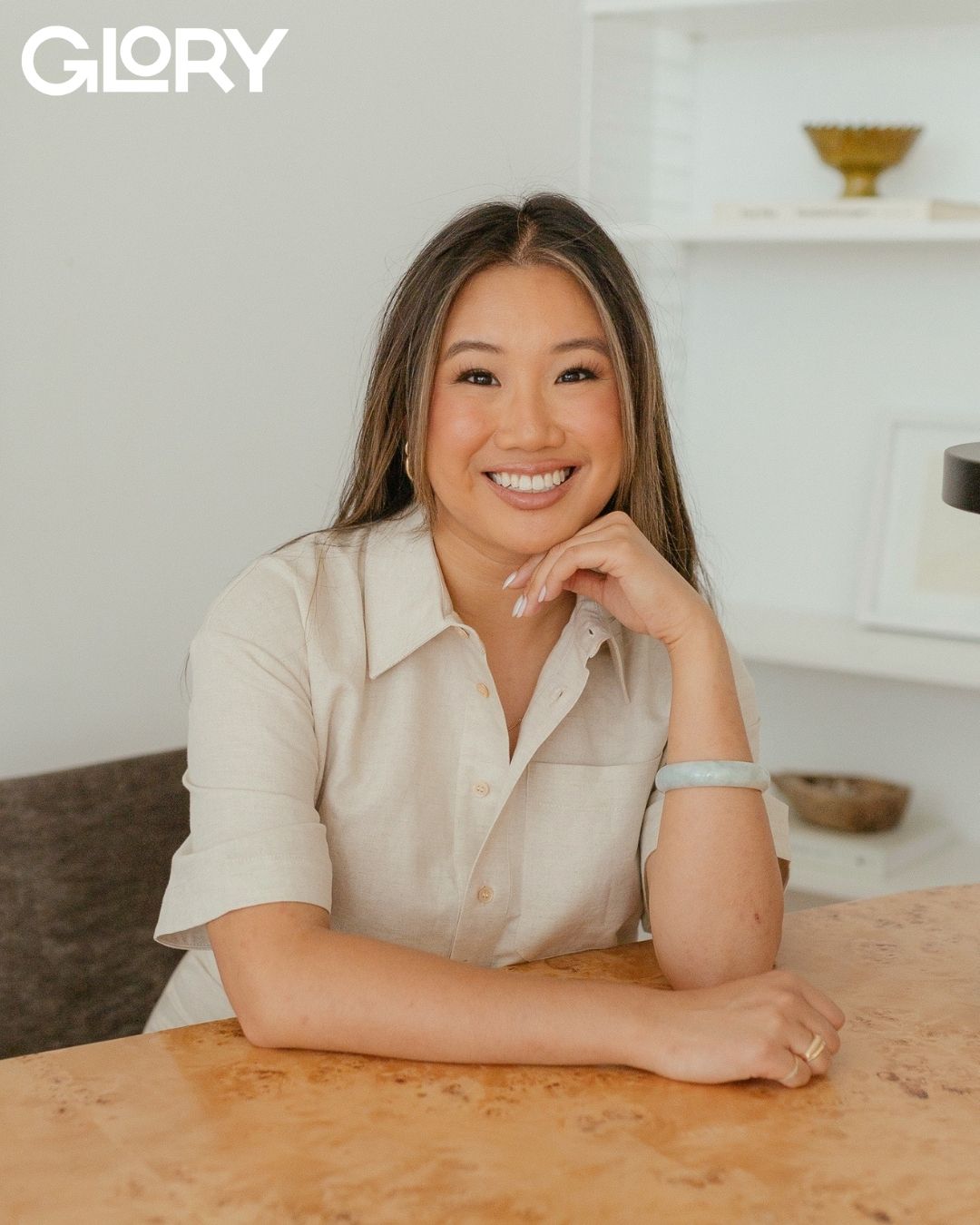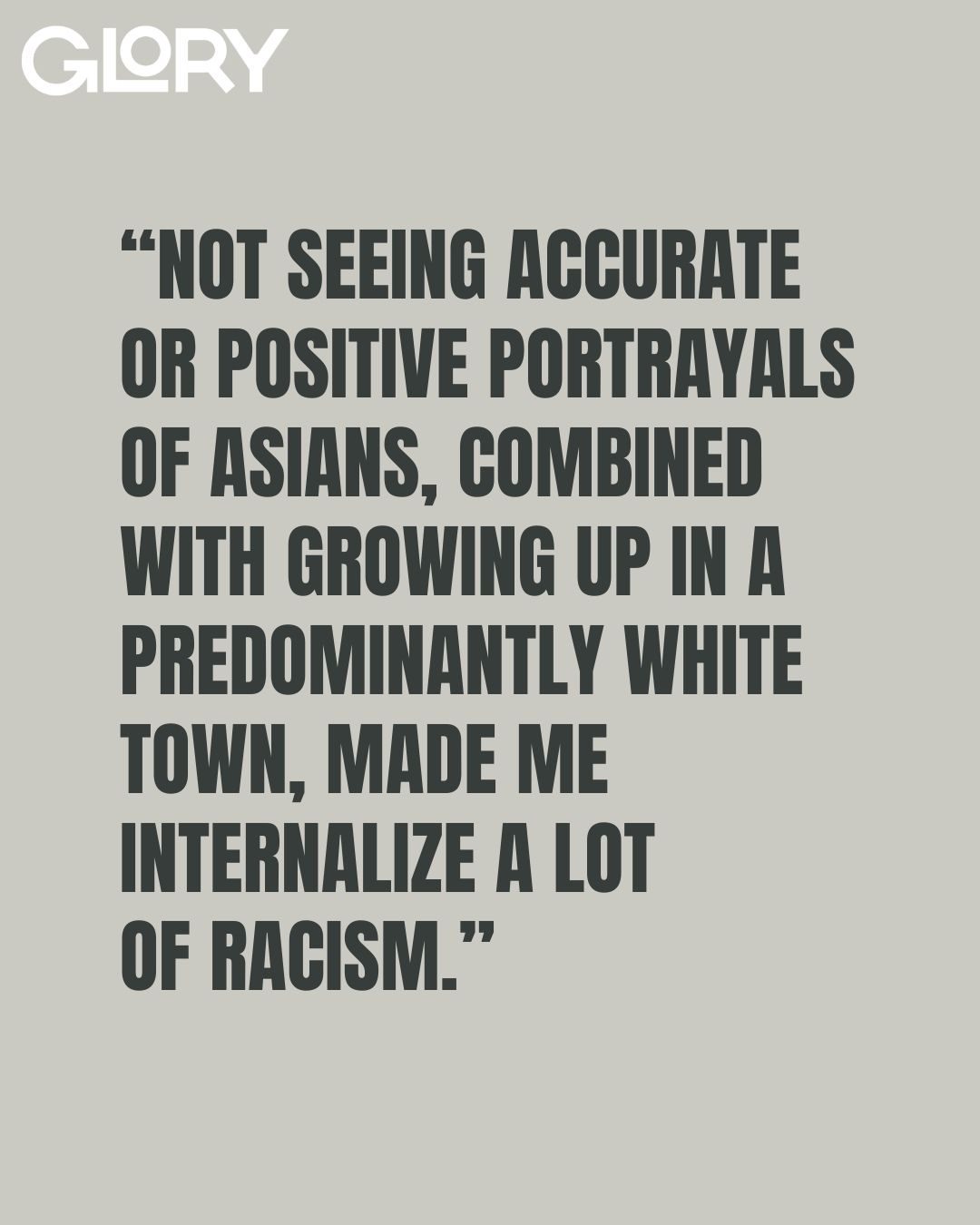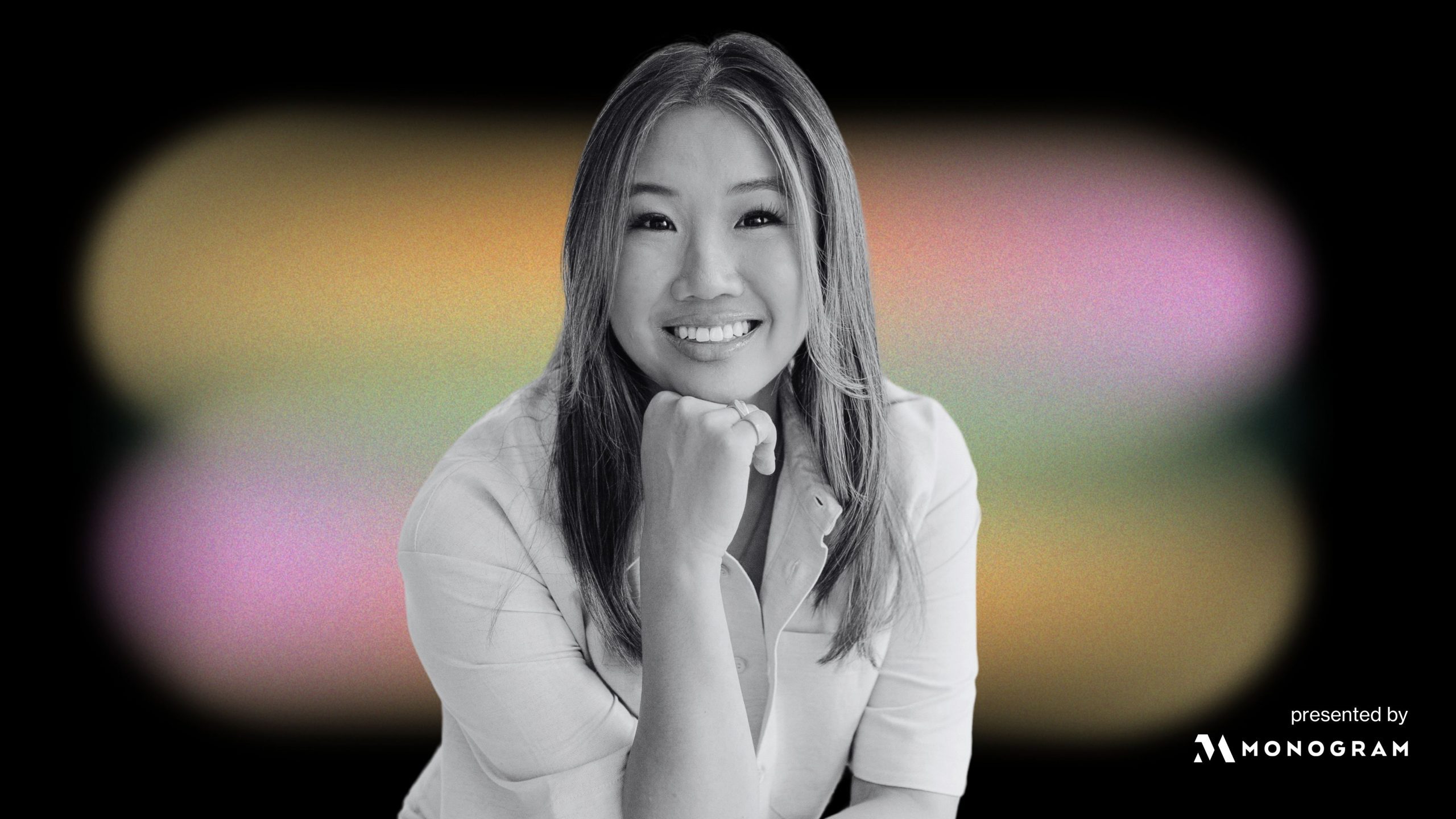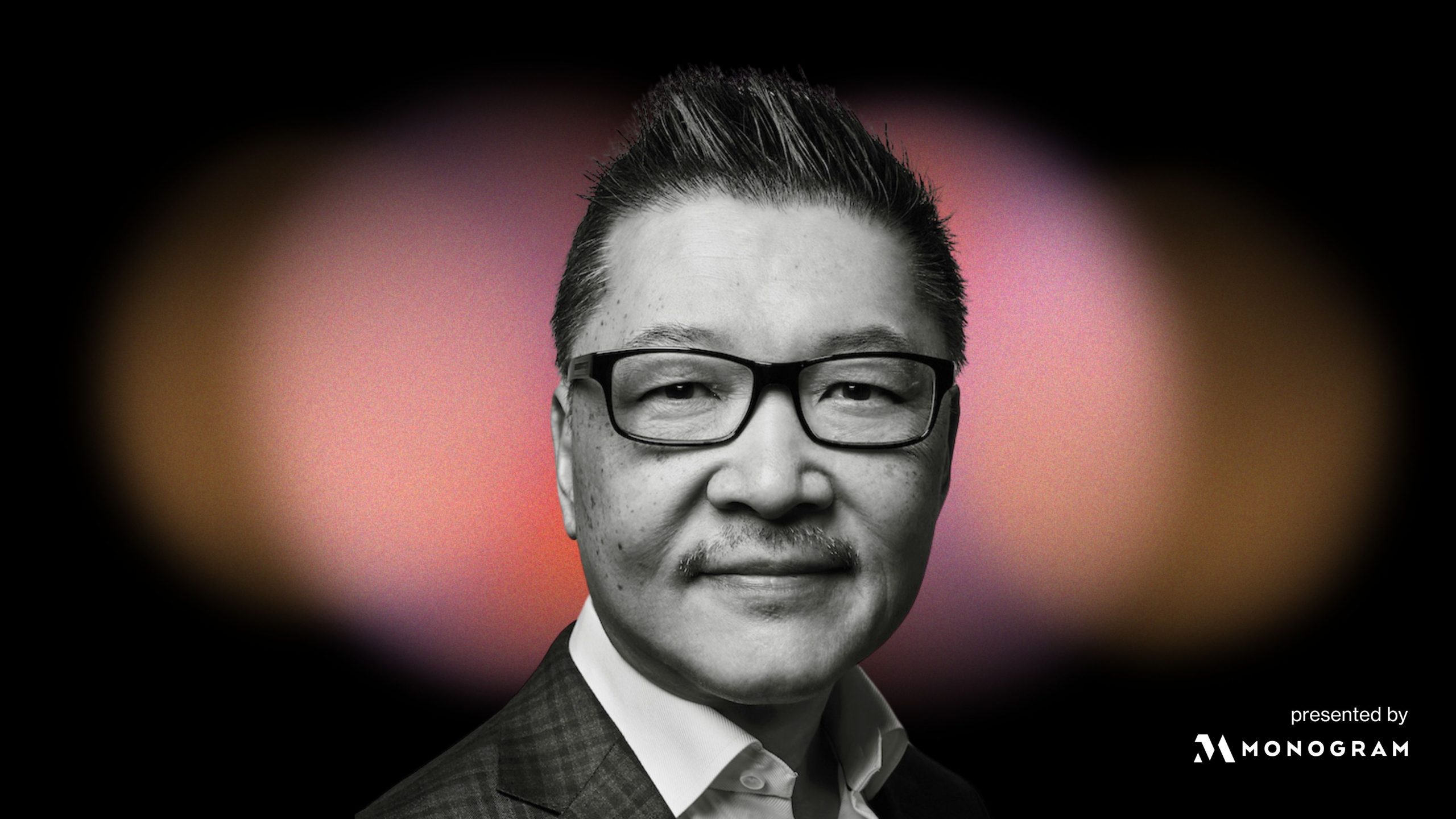Madelyn Chung didn’t just see a gap in media representation—she felt it. As a seasoned journalist working, Chung constantly encountered the limitations of traditional media’s narrow lens, especially when it came to telling stories from diverse Asian perspectives. This inspired her to create The RepresentASIAN Project, a platform dedicated to amplifying voices from the Asian North American diaspora.
In a conversation with GLORY Media, Chung opens up about navigating the intricacies of cultural identity to addressing issues like internalized racism within the Asian community.
Through The RepresentASIAN Project, Chung is not just celebrating Asian talent but also fostering conversations that challenge stereotypes and highlight the complexities of the Asian North American experience.
This profile is part of a larger series called Momentum, presented by Monogram Appliances, which aims to celebrate Asian leaders. Listen to the conversation or continue reading below.
You are the founder of The RepresentASIAN Project. How would you describe the platform you’ve built?
Madelyn Chung: We represent the Asian North American diaspora and the issues that matter to us.
How important is it for you to communicate that you’re talking about the entire Asian diaspora, versus just focusing on one specific community, like East Asians?
Madelyn Chung: It’s definitely a challenge. Asia is a massive continent with so many countries, and there’s also the question of who considers themselves Asian. Do Iranians call themselves Asian, West Asian, or Middle Eastern? People from India—do we say South Asian or just Asian? It can get tricky. I try to be as inclusive as possible, but I also recognize my limitations as an East Asian woman. I can only speak so much about the experiences of West Asians, South Asians, or Southeast Asians. The platform probably skews more East Asian because I’m running it, but I do my best to incorporate other perspectives.
What led you to create The RepresentASIAN Project? Was there a particular “aha” moment for you?
Madelyn Chung: I worked as a journalist for many years. I was the Style Editor at HuffPost Canada and later worked at FASHION magazine as a Digital Editor. I loved the fashion and lifestyle industries, but I had what I’d call a quarter-life crisis. I was tired of writing about celebrities and surface-level stuff. Fashion is important—there’s deeper discourse there—but at that point, I was feeling lost. I’d wanted to work in fashion since I was 16, and suddenly I wasn’t sure if it was for me anymore.
So I quit my job, went back to school to study music therapy, and tried to figure things out. As I was doing that, I still wanted to make money, so I started freelancing. Around 2018, after Crazy Rich Asians came out, I began writing more about identity and what it meant to be a Chinese Canadian woman. I was pitching articles to various outlets, but I got a lot of responses saying my work was “too niche.” That said a lot about what traditional media thought of their audiences.
2018 was not so long ago…
Madelyn Chung: It really wasn’t that long ago. Some outlets did give me opportunities, and I’m grateful for that because it helped me hone my voice. But I reached a point where I just wanted to create my own thing—a platform or publication that I wish I had when I was younger. I wanted an Instagram feed full of Asian faces doing cool things, and a website to go with it.
One night, around 12:30 AM, the idea just hit me like a download. I started writing down everything, and by 2 AM, I had the name, I’d bought the domain, and I even made a (terrible) logo on Canva. I’m someone who often gets excited about ideas but doesn’t always follow through, so I reached out to a friend who’s a graphic designer. I asked her to redo the logo, and by paying her, I felt like I was holding myself accountable. From there, it just grew.
Considering your background in media and those early rejections about your work being “too niche,” what gap did you feel you were filling with The RepresentASIAN Project? What was missing from the storytelling landscape at that time?
Madelyn Chung: Traditional newsrooms, especially back then, were predominantly white. Even at HuffPost, where I was fortunate to be in a more diverse newsroom, I learned the importance of different perspectives. For instance, my managing editor would remind me to include products for different sizes in something as simple as a winter coat slideshow. That really opened my eyes to how media often caters to a very specific audience, and if you’re not part of that, you’re left feeling unworthy.
Whenever I wrote about my identity, I felt the need to over-explain, as if I was still writing for an audience that wasn’t “my people.” I wanted to create a space where marginalized communities could tell their stories authentically, without having to justify or explain themselves.
Growing up, what kind of Asian representation did you see in media? Who did you look up to, and how did that shape your perspective?
Madelyn Chung: I didn’t see many. I remember London Tipton from The Suite Life of Zack & Cody—shout out to Brenda Song!—but her character was a caricature, very ditzy. Then there was Lane Kim from Gilmore Girls, the stereotypical nerdy, super-religious Asian. There were also the oversexualized “Dragon Ladies.”
Not seeing accurate or positive portrayals of Asians, combined with growing up in a predominantly white town, made me internalize a lot of racism. I was embarrassed to be Asian and rejected my culture. Crazy Rich Asians was life-changing for me because, for the first time, I saw Asians being celebrated on screen. I saw hot Asian men, not just the nerdy guys who never got the girl, and it was a more positive experience overall. It’s still a very specific type of Asian in Crazy Rich Asians, but it was just a more positive experience and a more positive reflection of this community than I was used to seeing.
I remember Simu Liu and Andrew Fung when they were still on Kim’s Convenience, and on Twitter, they were like, Hey, everyone, let’s just buy out the theater at Yonge and Dundas and all go together and watch Crazy Rich Asians together.
RELATED: Simu Liu on Becoming Marvel’s First Asian Superhero
So I got a ticket and being in that theater with a bunch of Asians, we were all laughing at the same things. We were all crying at the same things. It was the most amazing experience. I remember going home and being like, wow, I’m so proud to be Asian. I don’t remember the last time or when I’ve ever said that or felt that way. I think from there, my perspective really shifted. I recognized how the power of representation is so impactful because, if just one movie could do that to me and led me to build a platform, imagine what having that regularly can do?
There weren’t many Asians around you growing up, right? How did that impact your sense of identity?
Madelyn Chung: No, there were barely any Asians, like I said. Most of my family was overseas, so I didn’t see many people who looked like me other than my mom and the few Asian kids in school. Even in high school, people would try to pair me up with the other Asian guys, saying, “You guys should meet and date,” just because we were both Asian. It was an interesting experience, to say the least.
Do you think developing an interest in your cultural roots as you get older is a common experience for many within the Asian community?
Madelyn Chung: Totally. I went to Beijing when I was eight or nine, and I didn’t like it. I wanted to go home. Anytime we had Chinese food or visited a Chinese grocery store, I’d be like, “I don’t want to go.” But now, I only want to eat Asian food and shop at the Asian grocery store. I think a lot of us rejected our culture when we were younger. I hope more people are embracing it as they get older.
So much of what you’re doing with The RepresentASIAN Project is about celebrating Asian talent and sharing diverse stories. Have the goals of your platform shifted since you first started it?
Madelyn Chung: Definitely. At first, it was all about positive, uplifting content. People would say, “Wow, you always post great, positive stories.” And while I see the value in that, I realized there’s also importance in sharing the difficult, more nuanced stories—things we need to talk about as a community. Representation is crucial, but it’s not the solution to everything. It’s just a stepping stone.




There’s obviously work that needs to be done outside of the Asian community, but within our own communities as well, especially around issues like colorism.
Madelyn Chung: Absolutely. You and I are paler-skinned, so we’ve had more privilege than, say, someone who’s Filipino or Cambodian. I’ve had friends who’ve dated people from Southeast Asia, and their parents have said things like, “It’s a shame he’s so dark.” It’s those internalized things we need to address. We’ve been conditioned to think certain ways, like locking car doors when driving through predominantly Black neighbourhoods, and we need to unlearn those behaviors. It’s about solidarity and uplifting all BIPOC communities.
Speaking of representation, how do you balance telling success stories while avoiding the harm of the Model Minority Myth?
Madelyn Chung: It’s tough. Success stories get clicks and build an audience, but I also make it a priority to share other narratives—stories of people who grew up with no money, who faced barriers but still created their own businesses. It’s important to show all sides of the community.
RepresentASIAN Project has given you a lot of purpose, but it must be a lot of work to run a media platform. How does that influence the decisions you make about who you feature and work with?
Madelyn Chung: Initially, I wanted to keep it within the Asian community—whether it was hiring writers, photographers, or videographers. But now, I’m more open to working with people from other BIPOC communities. I think it’s a show of solidarity, lifting each other up.
Do you consider yourself an entrepreneur at this point?
Madelyn Chung: Honestly, it’s hard for me to call myself that. I still feel like I don’t know what I’m doing half the time! I think of myself more as a journalist. But everyone around me says, “You’ve built a business,” and I guess that’s true. The dream is to turn this into a sustainable business where I can hire people who don’t often get opportunities elsewhere.
This interview has been edited and condensed for clarity. For the full conversation, listen to the interview on the Mission Critical podcast.













